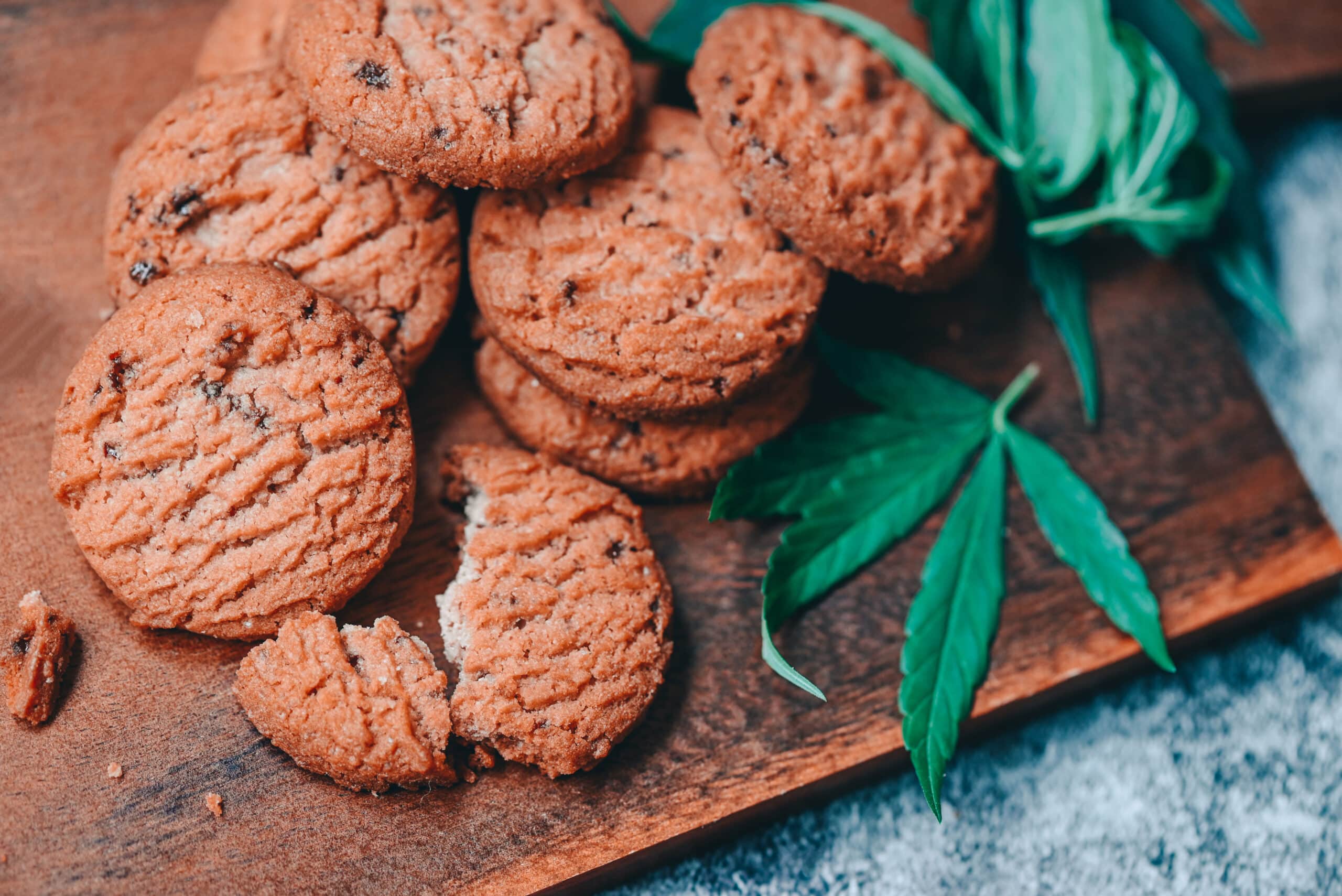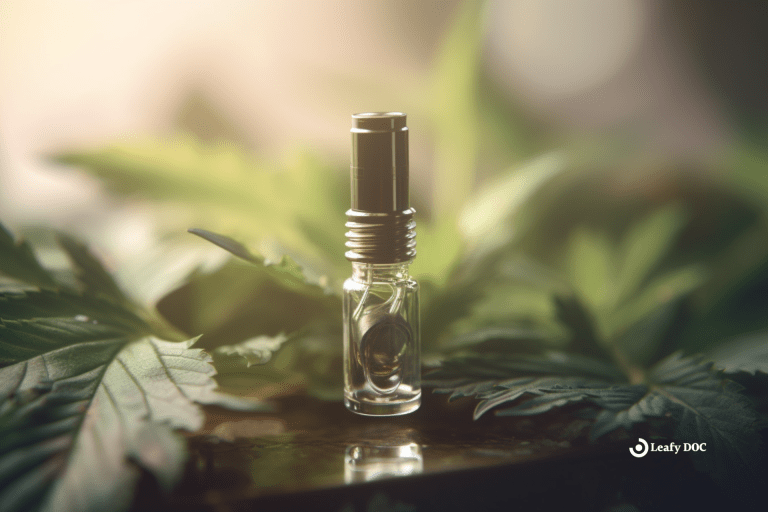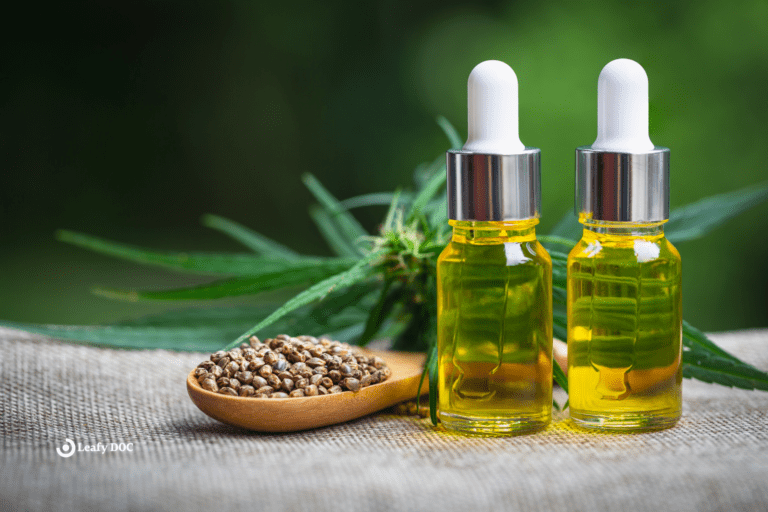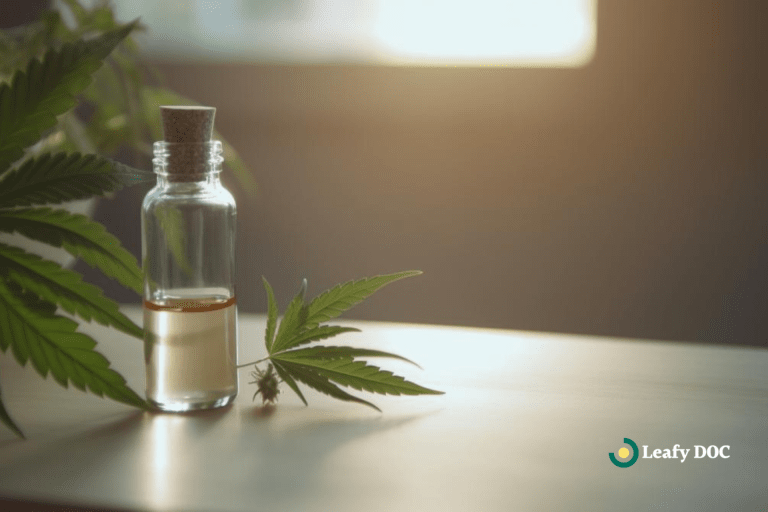How Long Do Edibles Last?
by Haley Mills · November 16, 2022
How long do edibles last? This is a question that many people ask when they are first trying out edibles. The answer may surprise you!

How long do edibles last? This is a question that many people ask when they are first trying out edibles. The answer may surprise you!
What are Edibles?
Weed edibles contain cannabinoids that you can consume by eating or drinking. Cannabinoids are chemical cannabis compounds found in cannabis that can affect your mind and body after consumption. THC (tetrahydrocannabinol) is the primary cannabinoid that makes users feel high when consuming edibles.
Types of Cannabis Edibles
Here are some of the most common types of edibles you’ll find online and at your local dispensaries:
- Beverages
- Baked Goods (brownies, cookies)
- Gummies
- Gourmet Candy
- Hard Candy
- Savory Snacks
How do Edibles affect us?
Edibles are consumed and digested, encouraging the body’s endocannabinoid system (ECS) to do its job. The endocannabinoid system comprises an extensive network of chemical signals and cellular receptors densely packed throughout our brains and bodies.
The “cannabinoid” receptors in the brain — the CB1 receptors — outnumber many other receptor types in the brain. They regulate the body through immediate feedback, turning up or down the movement of whichever system needs to be adjusted, whether hunger, temperature, or alertness. Our bodies produce endocannabinoids to stimulate these receptors, which are similar to molecules in the cannabis plant.
What does the ECS do?
The endocannabinoid system regulates learning and memory, emotional processing, sleep, temperature control, pain control, inflammatory and immune responses, and eating. This vital system is currently at the center of renewed international research and drug development.
Benefits of Cannabis Edibles
The potential benefits of consuming cannabis for medical treatment are vast. Specific cannabinoids can produce a therapeutic potential for patients with different health conditions.
Peer-reviewed studies suggest that cannabinoids have varying health benefits. They have been used throughout history to manage various health concerns and ailments. While research continues, more evidence suggests that cannabis and cannabinoids can benefit human health.
A few studies offer information that suggests specific cannabinoid combinations act with different compounds to provide the following potential benefits:
- Addiction Treatment
- Appetite Stimulation
- Digestive system aid
- Sleep Aid
- Muscle Function Improvement
- Seizure Control
- Pain management
- Anti-inflammatory benefits
Studies are being done worldwide to see how cannabis may aid in fighting cancer, slowing down tumor growth, and if cannabinol delays symptom onset for certain chronic pain conditions involving peripheral analgesics.
Different cannabinoids and consumption methods (oral fluid cannabinoid pharmacokinetics) are also being looked at as options that may benefit those who suffer from autoimmune diseases such as rheumatoid arthritis, lupus, Crohn’s disease, multiple sclerosis, and HIV/AIDS.
Potential Risks
There aren’t many known side effects for CBD, and most side effects from marijuana come from higher doses and long-term use. Weed can over-activate parts of the brain that contain the highest amount of cannabinoid receptors, which causes the intoxicating effects known as a “high.”
Marijuana also affects brain development if used at an early age. When people begin using it as teenagers, it can potentially impair cognitive functions and affect how the brain connects and communicates with other body areas.
Edibles can carry similar risks as other THC cannabis products. The potential dangers of medical marijuana include the following:
- Nausea and vomiting
- Paranoia
- Anxiety
- Increased heart rate
- Dry or Red eyes
- Slowed cognitive function
- Extreme fatigue
Marijuana for medical use does not produce any known severe side effects. Some people fear it might cause too intense of a high, and others have reservations about its legality, considering that marijuana is federally illegal in the United States. It’s crucial to brush up on local laws and choose a high-quality product for pain relief.
If you are on coagulants or blood thinners, you may want to remain cautious with edibles because THC can significantly slow down blood clotting. Remember to discuss using medical marijuana for migraine prevention with your primary care physician, especially if you are scheduled for an upcoming surgery or procedure.
According to the Diagnostic and Statistical Manual of Mental Disorders — published by the American Psychiatric Association — the following criteria are indicative of potential marijuana abuse:
- Prolonged marijuana use despite physical or psychological distress
- Prolonged marijuana use despite social or relationship problems
- Marijuana cravings
- Difficulty controlling or reducing cannabis use
- Prioritizing cannabis in favor of other activities
- Causing harm at work, school, and home as a result of marijuana use
- Marijuana use dominates one’s daily schedule.
- Risky behaviors during/after marijuana use
- Using more cannabis than is typical
- Cannabis tolerance
- Cannabis withdrawal symptoms such as emotional distress or severe agitation (irritability/anger/depression), difficulty sleeping, and decreased appetite
- Smoking cannabis can be worse on lungs and smoking or vaping can decrease overall health
Are edibles legal?
Yes. Cannabis-infused edibles are legal in certain states within the United States as long as they are produced by licensed cultivators and manufacturers of cannabis or industrial hemp. We suggest checking your local laws to know what is allowed in your state regarding THC and hemp. If your state has a medical cannabis administration set up, that would be the website to visit for more information.
Do I need a Medical Card?
In recreational states, a medical marijuana card is not required to purchase and possess edibles. However, some states will require a person to register before obtaining edibles. Leafy Doc can help you get a medical card in specific locations.
Click here for more information, and check out the simple steps below.
Book an Appointment
Skip unnecessary trips to the doctor’s office and complete your appointment from the comfort of your home. You’ll need to provide prior medical history and book your appointment.
Meet with a Doctor
Connect with the correct state-certified physician and easily talk to your provider on mobile phones or tablets. The provider will evaluate your condition and address any questions or concerns. Then, they will provide recommendations for approved medical marijuana patients.
Get your Medical Card
Your health coach will be available to address any questions and support your upgraded lifestyle. You’ll be able to keep continuous communication through every step to getting your medical cannabis card from your state.
How long do edibles last?
Cannabis plants naturally dry and become less potent and flavorful over time, so storing edibles properly in an airtight container is essential to keep the edibles fresh. You can use marijuana butter immediately to make baked goods and many recipes. Infused butter and cannabis oil have a shelf life of up to six months in the refrigerator and up to a year in the freezer when adequately stored in airtight plastic containers or sealed glass containers.
Most edibles issued from licensed dispensaries will have an expiration date, but you can follow this rule of thumb for two popular types of edibles:
- gummies- will start to lose potency after 3 months; can be stored in freezer for 6 months
- brownies- 2 weeks in sealed container; 6 months in freezer
MMJ Edible Storage Tips
There are multiple ways to store marijuana edibles; however, it greatly depends on the edible you will be placed in storage. We have covered marijuana butter, so let’s review some edible types and their shelf life.
For cannabis brownies, it’s best to store edibles with wax paper in airtight silicone containers. If you plan to freeze edibles, cover them in plastic wrap and place them in sealed, zip-up plastic bags for best results. These will maintain their full potency for about two months when stored properly and can successfully be stored for up to six months.
With medical marijuana tinctures, it’s best to keep them in glass jars at room temperature in a dark place. Storing like this will keep it fresh for a few months. While you can freeze tincture in airtight containers, it doesn’t maintain the oil’s integrity.
When storing cannabis gummies, they typically last up to a year without being frozen, but the potency will decrease over time. If you are going to keep gummy edibles, wrap them up and place them in an airtight container before deep freezing them for the best results.
Pros of Cannabis Edibles
- Eating edibles is discreet, unlike smoking weed, which you can use in public.
- It’s easier to travel, especially on a plane, with cannabis in edible form.
- The effects are more intense and last longer.
- Relatively easy to make at home
- They come in many different forms.
- Healthier on the body than smoking marijuana
Cons of Edibles
- It takes longer to feel the effects
- It can be hard to take the correct dosage
- Edibles can be much different from brand to brand, product to product
Tips for Edible Dosage
It’s vital to know how much THC is in your edibles. You can not measure the same dose for edible potency as you would a tincture or cannabis flower. An edible high can take longer to onset, but it can also be more intense. We recommend starting with the lowest recommended dose on the package and then moving up as your feel comfortable or as needed depending on your reason for using. Remember not to take edibles on an empty stomach as that can intensify the effects or promote feelings of nausea.
Summary
Depending on the type of cannabis edible, results can vary when storing them for freshness. There are multiple ways to keep cannabis edibles to maintain potency and flavors. The most important thing to remember is to keep them in a temperature, humidity, and light-controlled area and preferably in an airtight container for best results.
Last Updated: August 8, 2024
Get Approved for Your Medical Marijuana Card in Minutes!

Get Your Medical Card
Connect with a licensed physician online in minutes

Like This Article?
Share with your friends
Table of Contents
Keep Reading
-
How to Refill a Cannabis Vape Cartridge
Discover the expert technique for refilling your cannabis vape cartridge like a pro. Never waste oil again and experience delicious, smooth hits. Click now to learn how to refill a cartridge and enhance your vaping experience today!
-
How to Make Your Own Cannabis Tincture: A Step-by-Step Guide
Learn how to make your own cannabis tincture with our step-by-step guide. Discover the benefits of using cannabis extracts and how to create your own at home.
-
Exploring The Benefits Of Medical Marijuana For Patients’ Access
Unlock the power of medical marijuana to improve patients’ access and transform healthcare. Explore the surprising benefits of medical marijuana now! Click here for a game-changing perspective on healthcare.



